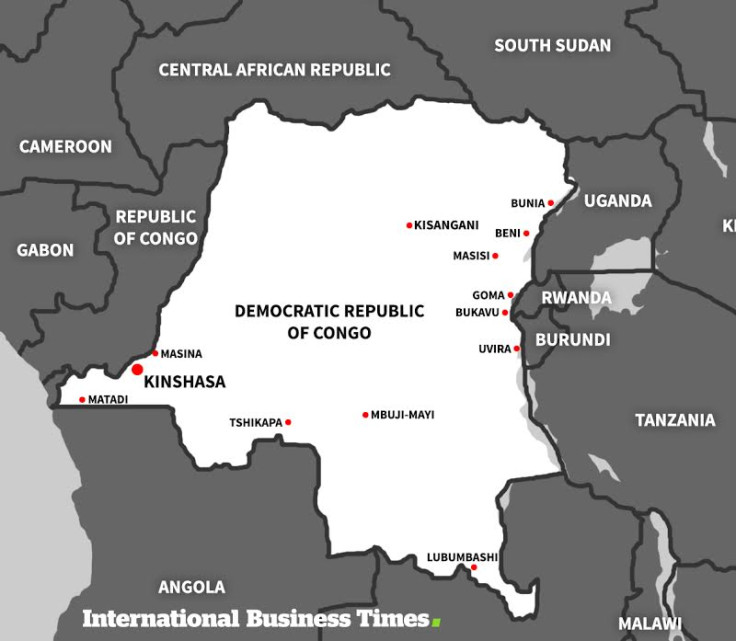EU was 'far too quiet about the repression and its implications for DRC's future', says rights group
EU 'should follow up with targeted sanctions to address the escalating crisis in DRC' claims Enough Project.
A human rights group has welcomed the European Union's move to increase pressure on the government of the Democratic Republic of Congo (DRC) but said the bloc should follow up with targeted sanctions to address the escalating political crisis in Congo.
Activists and rights groups have been urging global powers including the US and EU to use strong financial pressure to ensure President Joseph Kabila steps down at the end of his second mandate, as stated in the Constitution, and end repression against dissenting voices.

"The EU will use all the means at its disposal, including individual restrictive measures against those responsible for serious human rights violations...and those who would try to obstruct a consensual and peaceful solution to the crisis," the EU Foreign Affairs Council said in its statement on 17 October, which is binding on all 28 member states.
EU member states 'have been sitting back'
While Washington DC-based Enough Project – which aims to end genocide and crimes against humanity – welcome the council's move, it urged the EU to follow up with targeted financial pressure and strong enforcement of "anti-money laundering measures, asset freezes, and travel bans against kleptocratic leaders".
"The EU has a powerful role to play to mitigate this crisis. Member states have been sitting back, far too quiet about the repression and its implications for Congo's future," Holly Dranginis, the group's senior policy analyst, said.
The right organisation's founding director, John Prendergast, echoed this view, and demanded the US followed suit.
"Now that the EU has moved, the US government should ratchet up its pressure on Congo in order to help facilitate a timely democratic transition (...) The US should strongly enforce sanctions and anti-money laundering steps, complemented by support to civil society and protection for civilians facing an increasingly hard-handed state apparatus."
Increasing pressure of Congo's government
Over the past 18 months, the Congolese security forces have been accused of arresting members of the opposition, illegally jailing notable pro-democracy activists, and of violently suppressing political protests to avoid scheduling national elections. The electoral delay sparked two days of protests in the capital Kinshasa last month which killed dozens of people.
In June the US began targeted sanctions when the OFAC imposed restrictions on Célestin Kanyama, the police commissioner in the Congolese capital Kinshasa, for his role in what it described as the violent suppression of opposition to Kabila's government.
On 28 September, the US Treasury Department's Office of Foreign Assets Control (OFAC) announced the imposition of sanctions on General Gabriel Amisi Kumba, army commander of the country's western region, and Major General John Numbi Banza Tambo, former inspector general of the National Police. The sanctions mean that the individuals' assets are blocked and they are generally prevented from dealing with Americans.
Kabila – who said he respects the constitution but has not dismissed claims he will alter a law which enables him to run for a new term (following 'examples' set by presidents of neighbouring Rwanda and Congo Republic) – is yet to comment on the EU Council's announcement.
Who are the US-sanctioned Congolese officials?
The officials have long been implicated in serious abuses.
General Amisi aka "Tango Fort" is described by many as a key member of Kabila's inner circle. He was suspended from the army after a 2012 UN Group of Experts report accused him of supplying arms and ammunition to illegal groups known to commit atrocities.
The general was never prosecuted by the Congolese military justice system for these alleged crimes, but was promoted to his current position in charge of security for Kinshasa and western Congo despite the earlier suspension.
Major General Numbi is the former national inspector of the country's police force. In 2008, the Congolese national police which was under his control was accused by human rights' groups of using excessive force against an ethnic-based religious and political sect, the Bundu dia Kongo (BDK). The unarmed BDK was calling for greater political independence in Bas Kongo province.
In 2010, while the general was head of the Congolese National Police force (PNC), a UN investigation into the death of human rights activist Floribert Chebeya highlighted the "strongly suggested official responsibility" in the enforced disappearance and murder of the executive director of the NGO Voix des sans Voix.
According to activists, the day before Chebeya was found dead, he and an associate had shown up at PNC headquarters to meet with its director, General Numbi. Reports say they did not emerge from this meeting alive.
Following the news, the Congolese authorities were obliged to open an investigation, which culminated in the precautionary suspension of the general. Despite the allegations, however, Numbi was never indicted for Chebeya's murder.
© Copyright IBTimes 2025. All rights reserved.






















